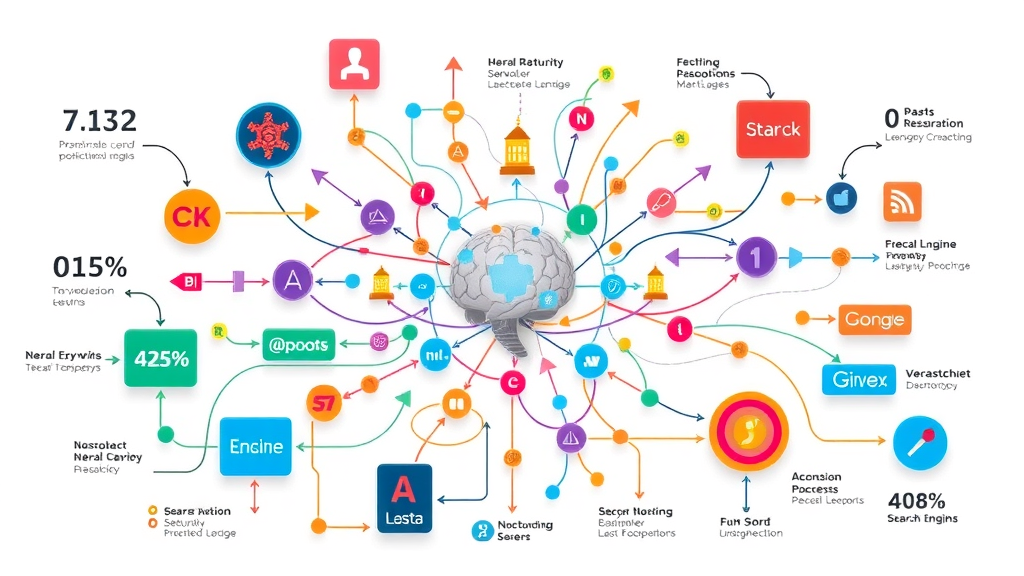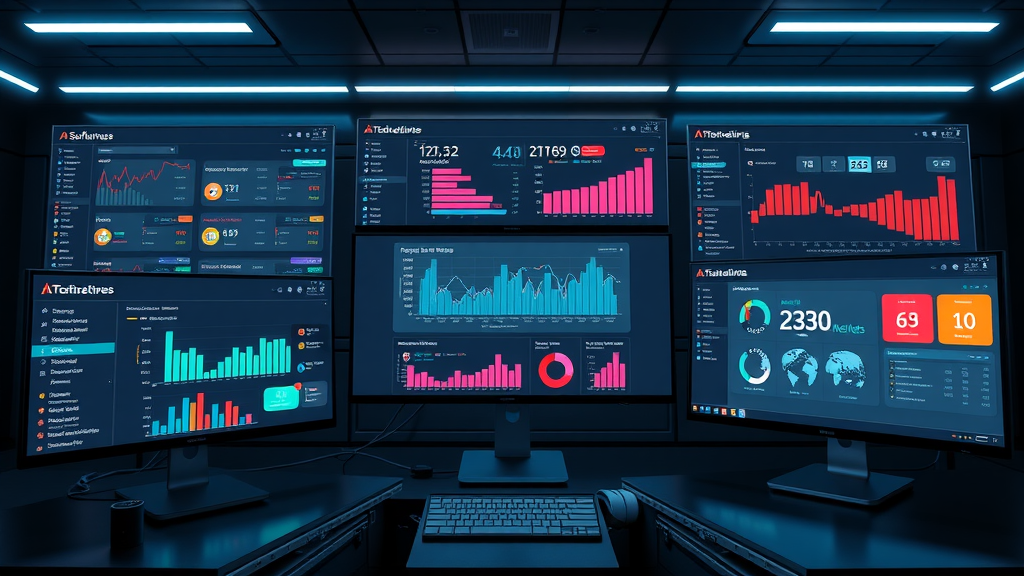- Did you know that over 70% of top-ranking pages leverage some form of machine learning algorithm to enhance their SEO performance? Discover how machine learning in SEO is fundamentally reshaping the future of search engine optimization and why you cannot afford to ignore it in your strategy.

Unlock the Power of Machine Learning in SEO: What Every Digital Marketer Must Know
- Insights into how machine learning is integrated into modern search engine optimization
- Step-by-step guidance on deploying machine learning algorithms for SEO success
- Actionable tactics to future-proof your SEO strategy with artificial intelligence and advanced learning algorithms
Machine learning in SEO is revolutionizing how digital marketers approach search engine optimization. With search engines continually updating their algorithms to better align with user intent and user behavior, understanding and deploying machine learning is crucial for staying ahead. Marketers now have access to advanced learning algorithms that automate repetitive tasks, analyze large datasets with incredible accuracy, and surface opportunities traditional methods often miss.
Integrating machine learning algorithms into your SEO strategy not only optimizes content, but it also enhances the overall user experience—one of the central goals of search engine platforms like Google. By automating keyword research, adapting content in real-time, and leveraging predictive analytics, digital marketers can make smarter, data-driven decisions with greater efficiency and less guesswork. This article gives you step-by-step tactics and expert advice for embedding machine learning in your SEO processes, ensuring your site remains competitive as artificial intelligence shapes the future of search engine optimization.
Understanding Machine Learning in SEO: Definitions and Key Concepts
What is Machine Learning? A Brief Overview with Focus on Search Engine Optimization

Machine learning is a branch of artificial intelligence focused on building computer systems that learn from data patterns and make predictions or decisions without explicit programming. In the context of search engine optimization , machine learning allows search engines to analyze large datasets of user behavior, search queries, click-through rates, and contextual factors. This analysis fine-tunes search engine learning algorithms , making search results more relevant and personalized.
Central to this process are machine learning models such as neural networks, decision trees, and clustering algorithms. These models excel at identifying trends, extracting insights from large data , and adapting ranking signals to surface the most relevant results for users. For businesses and SEOs, understanding how these models contribute to engine optimization can help align content creation and SEO efforts with what search engines are prioritizing. When you integrate machine learning in SEO workflows, you're essentially mimicking what search engines do—analyzing, predicting, and optimizing for better organic traffic.
Ultimately, machine learning fuels smarter tools and tactics for keyword research, content optimization, and understanding user intent, all while making SEO strategies more resilient to ever-changing search engine algorithms.
How Search Engines Use Machine Learning Algorithms to Improve Results
Modern search engines like Google, Bing, and others leverage machine learning algorithms at almost every stage of the search process. These advanced technologies analyze queries, match them with website data, and learn from how users interact with specific search results—constantly evolving to make results as relevant as possible.
For example, Google's RankBrain is a machine learning algorithm designed to process never-before-seen queries and determine the intent behind ambiguous searches. By studying massive patterns in user behavior—what they click, bounce rates, time spent on site—search engines adjust results in real time for maximum relevance. These learning models also flag manipulative SEO strategies, helping maintain the quality of search engine results for everyone.
Understanding how these algorithms function is essential for anyone serious about SEO. Whether you are doing keyword research or optimizing site speed, aligning strategies with the underlying machine learning in SEO ensures higher rankings and lasting visibility in competitive search landscapes.
| Feature | Traditional SEO | Machine Learning in SEO |
|---|---|---|
| Data Processing | Manual analysis, limited by human capacity | Automated analysis of large datasets and complex relations |
| Keyword Research | Time-consuming, relies on manual selection | Automated, scalable, and adaptive keyword discovery |
| User Intent Understanding | General assumptions and rule-based logic | Behavioral pattern recognition for deeper personalization |
| Content Optimization | Predetermined templates, slower adaptability | Dynamic adjustments based on learning models and user data |
| Response to Algorithm Updates | Reactive, sometimes slow to adapt | Proactive, continuous learning allows quick adaptation |
How Machine Learning Algorithms Are Transforming Keyword Research
Automating Keyword Research for Scalable SEO Performance
Traditional keyword research was once a manual, labor-intensive task. Marketers sifted through spreadsheets and relied on intuition to identify relevant keywords. With machine learning algorithms , the process has become automated, scalable, and significantly more accurate. Today, SEO tools powered by learning models can analyze massive keyword datasets, discover new terms, suggest variations, and cluster keywords based on semantic relationships in seconds.
This automation doesn’t just save time—it increases the scale at which SEOs can operate. Machine learning in SEO empowers teams to analyze niches, competitors, and search engine trends quickly, staying nimble in markets that are constantly changing. Moreover, these algorithms adjust recommendations continually, using real-time user data and search patterns, ensuring that your SEO strategies remain effective and up-to-date.
For any business aiming to boost organic traffic and maximize SEO performance , leveraging machine learning algorithms for keyword research is no longer optional—it's critical for sustainable growth.
Understanding User Intent: The Role of Learning Algorithms in SEO Success
At the heart of successful SEO is understanding user intent . Machine learning algorithms excel at deciphering what users are truly looking for, moving beyond the simple matching of keywords to analyzing how users phrase queries, what they click on, and the context of their search.
Adaptive learning models enable search engines to recognize nuances—in intent, location, and even device usage—making results remarkably accurate. These algorithms can distinguish between informational, navigational, and transactional intent, tailoring search engine results accordingly. For SEOs, understanding how these patterns work can inform content creation, ensuring every piece is hyper-relevant to target audiences.
This dynamic intent analysis is a game-changer for SEO efforts, helping marketers not just chase rankings, but also deliver meaningful, intent-matched content that increases engagement and conversion.
Case Study: Improved Keyword Relevance with Artificial Intelligence

Consider an e-commerce brand struggling to rank for competitive product keywords. By implementing machine learning-based SEO tools , they analyzed real user queries and discovered semantically related terms overlooked by traditional research. The AI-driven insights allowed them to:
- Target high-potential, low-competition phrases
- Optimize content structure and internal linking
- Adapt quickly to market trends using live intent signals
Within three months, these AI-aided optimizations led to a 35% increase in organic traffic and a significant uptick in search result relevance. The case demonstrates how leveraging machine learning in SEO directly amplifies keyword relevance, user engagement, and, ultimately, ranking on modern search engines.
The shift from manual to algorithmic keyword analysis means embracing not only artificial intelligence but also a continuous, data-driven improvement cycle that’s fundamental to SEO in the AI era.
Machine Learning in SEO Tools: Enhancing Content Optimization and User Experience
The Best SEO Tools Powered by Machine Learning Algorithms

The market is rapidly filling with SEO tools that incorporate machine learning algorithms . Industry leaders like SEMrush, Ahrefs, Surfer SEO, and Clearscope offer features such as automated topic discovery, predictive keyword suggestions, and competitor analysis—all automated through AI.
These platforms process large datasets —from on-page metrics to backlink profiles—allowing marketers to pinpoint optimization opportunities in real time. Their learning models can uncover algorithm shifts earlier, recommend target keywords based on search intent, and suggest on-page changes that align with search engine ranking factors.
Investing in such AI-powered SEO tools not only streamlines workflows but also future-proofs your SEO strategy against the ever-evolving landscape of search engine optimization .
Personalizing User Experience Through Adaptive Learning Algorithms
Personalization is now central to SEO success. Adaptive learning algorithms adjust website content and user flows based on real-time analytics of how audiences interact with your site. By tracking user behavior , these systems deliver a tailored experience—offering relevant internal links, content suggestions, or product recommendations at just the right moment.
Such personalizations dramatically improve engagement, reduce bounce rates, and increase conversions—key indicators that search engines value highly. Machine learning models can segment audiences, test new UX treatments, and automatically refine the experience to match shifting preferences.
Implementing these techniques enables SEO strategies that are responsive, customer-centric, and highly effective in both retention and organic visibility.
Content Optimization Strategies Enabled by Artificial Intelligence
Content optimization has advanced far beyond traditional keyword stuffing. Artificial intelligence -powered solutions can now analyze topic depth, semantic structure, readability, and competitive gaps with incredible precision. These machine learning algorithms recommend specific enhancements that align with engine optimization ranking signals.
For example, Surfer SEO uses learning models to evaluate top-performing pages, suggesting word count, keyword placement, and relevant entities based on the highest ranking search results. Clearscope employs natural language processing to ensure content covers topics comprehensively, improving both user experience and SEO effectiveness.
By trusting AI recommendations for content optimization , SEO teams can focus on creative strategy, knowing their pages are aligned with both search engine requirements and user intent.
"The future of search engine optimization lies at the intersection of machine learning and creative strategy."
Optimizing for Search Engine Algorithms with Artificial Intelligence
Understanding the Core Machine Learning Algorithms Behind Leading Search Engines
Search engines like Google utilize a variety of core machine learning algorithms to sort, rank, and deliver content. These include neural networks that power natural language recognition, decision trees evaluating site quality, and reinforcement learning models gauging user satisfaction.
Understanding these foundational models helps SEOs anticipate what matters most—quality content, user experience, and relevance at scale. RankBrain, BERT, and MUM are prime examples of Google’s AI-fueled advances designed to decode complex queries and adapt results instantly.
Aligning site architecture and SEO strategies with these learning algorithms substantially increases the chance of success in competitive search rankings.
Adapting Your Engine Optimization Techniques for Algorithm Updates
Algorithm changes are a constant in search engine optimization , with each update powered by enhanced machine learning models. Rather than react too late, SEOs must proactively monitor site performance, track update trends, and number-crunch data looking for dips or gains.
Adapting your engine optimization approach involves using AI-powered analytics to automatically identify at-risk pages, test new content strategies, and implement recommended changes rapidly. By leveraging machine learning insights, you ensure your site's SEO remains agile and less vulnerable to volatility.
This responsive, iterative methodology—supported by machine learning algorithms —keeps your marketing ahead of the curve and in line with evolving search engine demands.
Proven Machine Learning in SEO Tactics: From Ranking Factors to Performance Metrics
Effective machine learning in SEO focuses on three pillars: understanding ranking factors, optimizing targeted content, and continually measuring performance.
- Use machine learning-based auditing tools to extract actionable ranking signals from your site and competitors.
- Deploy adaptive SEO strategies that iterate based on automated performance feedback, such as which content attracts the most organic traffic or engages users longest.
- Integrate regular performance tracking metrics —like click-through rates, dwell time, and conversion rates—directly into your learning models for continuous optimization.
These tactics ensure your SEO efforts are always informed by real data, dynamically prioritized, and focused on results—all driven by advanced artificial intelligence.
Building a Machine Learning-Powered SEO Strategy: Step-by-Step Guide
- Audit Your SEO Performance Data: Use AI tools to gather and assess all relevant site, traffic, and ranking data. Focus on identifying performance gaps, historic ranking trends, and potential new keyword targets from large dataset analysis.
- Select the Right Machine Learning Tools and Algorithms: Not every tool suits every business. Evaluate SEO tools for their algorithm sophistication, scalability, and ease of integrating with your current workflow.
- Integrate Artificial Intelligence for Content and UX Improvements: Apply AI-driven recommendations to re-optimize existing content, improve on-page elements, and refine the user experience based on predictive user journeys and intent signals.
- Measure and Refine with Learning Algorithm Insights: Continuously track the impact of AI interventions, leveraging algorithmic insights to run A/B tests, reallocate resources, and scale up winning strategies.
Explainer video: How machine learning transforms SEO—animations of AI algorithms analyzing rankings, keyword data, and user intent, visually walking through the main step-by-step strategy process outlined above.
Key Pitfalls to Avoid When Implementing Machine Learning in SEO

Despite its many benefits, implementing machine learning in SEO can be challenging. Over-reliance on automated recommendations without critical oversight can lead to thin or irrelevant content that disappoints users and undermines rankings. Ignoring the interpretability of AI outputs may mean missing hidden technical SEO problems or failing to spot negative optimization cycles.
Another common pitfall is failing to provide diverse, high-quality training data for your learning models, which can reinforce bias or produce generic suggestions. Overlapping AI tools may also create internal workflow confusion, slowing decision-making instead of streamlining it. Ensure your team understands both the capabilities and the limitations of each tool and model you deploy.
To avoid these challenges, always combine AI-driven insights with human expertise, regularly validate optimization recommendations, and maintain a feedback loop for continuous improvement.
Best Practices Checklist for Machine Learning in SEO
- Begin with a comprehensive SEO performance audit powered by AI-driven analytics
- Always align learning algorithms with clear business goals and user-centric outcomes
- Keep human oversight in the optimization process—never “set and forget” machine learning models
- Use machine learning for advanced keyword research , intent discovery, and content optimization
- Monitor for algorithm update signals and adapt strategies with AI-powered diagnostics
- Continuously test and validate all changes, combining algorithmic recommendations with editorial judgment
- Prioritize user experience; ensure all optimizations ultimately benefit your end user
"Data is the new oil, and machine learning is the engine driving search engine optimization success."
People Also Ask About Machine Learning in SEO
Does SEO use machine learning?
- Explore the integration of machine learning algorithms in modern search engine optimization practices and how they're improving efficiency and results.
Yes, today’s search engine optimization relies heavily on machine learning both in search engine algorithms and the SEO tools marketers use. These systems process large volumes of data to determine the best strategies for ranking and can even predict the next trends in organic search.
Can I use AI to do my SEO?
- Yes, artificial intelligence and machine learning tools allow for smarter SEO automation, faster data analysis, and scalable optimizations.
Absolutely! Marketers of all sizes can now leverage AI-powered SEO tools to automate keyword research , technical audits, content optimization, and even competitor analysis. These tools help to scale up SEO efforts, ensuring that even small teams can compete in the fast-paced search landscape.

Is AI replacing SEO?
- AI is transforming—rather than replacing—SEO by providing advanced tools and strategies to amplify results.
No, AI is not replacing SEO; it is transforming it. Artificial intelligence enhances the speed, accuracy, and scalability of SEO strategies, but human creativity and expertise remain essential for crafting relevant, trustworthy, and impactful content.
What is the AI algorithm for SEO?
- Common AI algorithms for SEO include natural language processing, decision trees, ranking models, and predictive analytics tools used by search engines and optimization platforms.
Popular algorithms include Google’s RankBrain, BERT, and MUM, alongside natural language processing and predictive analytics integrated within leading SEO tools . Each algorithm leverages its own learning model—such as neural networks or decision trees—to optimize search rankings and content relevance.
Frequently Asked Questions on Machine Learning in SEO Implementation
- How can I measure the impact of machine learning on my SEO performance? Track metrics such as ranking improvements, organic traffic growth, click-through rates, and engagement (like dwell time and bounce rate) before and after implementing machine learning-driven changes. Use AI-enabled analytics for detailed performance attribution.
- Which learning algorithms should a beginner start with? Beginners should look for accessible tools integrating natural language processing, predictive analytics, and clustering—these offer quick wins without steep learning curves. Popular platforms often have user-friendly interfaces for new SEOs.
- What are the privacy implications of using AI for SEO? Using AI in SEO often involves analyzing user data and behavior, so ensure compliance with privacy regulations like GDPR. Choose tools that anonymize sensitive information and clearly disclose data practices to maintain user trust.
Key Takeaways: How Machine Learning in SEO Can Elevate Your Digital Strategy
- Machine learning is revolutionizing SEO by powering better keyword research, content optimization, and user experience
- Search engine algorithms powered by artificial intelligence are constantly evolving—stay updated on best practices
- Building a machine learning-driven SEO strategy is now essential for digital competitiveness
Ready to Transform Your SEO Strategy with Machine Learning?
- Embrace the future—implement machine learning in your SEO today and gain a decisive edge in search engine optimization. Start your journey with the recommended tools, guides, and expert advice shared above.
Machine learning is revolutionizing SEO by automating complex tasks and enhancing content relevance. For instance, Ahrefs’ Content Explorer utilizes machine learning to analyze vast amounts of content data, enabling marketers to identify high-performing topics without extensive manual research. ( nogood.io ) Additionally, Google’s RankBrain algorithm employs machine learning to process search results, providing more relevant outcomes by interpreting user intent and handling unfamiliar queries effectively. ( en.wikipedia.org ) By integrating these advanced tools and understanding their mechanisms, digital marketers can significantly improve their SEO strategies and stay competitive in the evolving search landscape.
 Add Row
Add Row  Add
Add 






Write A Comment